DevOps Implementation Use Case for Helix Technology

Helix Technology Management Group
Organization Overview
Helix Technology Management Group is a leading Senegalese technology solutions provider that delivers innovative services to streamline business processes. With a focus on performance and efficiency, Helix serves clients across various industries, including the hydrocarbon sector, which is the focus of this use case. Helix leveraged the expertise of Primus Cloud Solutions Inc. to build a robust DevOps pipeline for one of its clients, the Ministry of Mines in Senegal.
Business Challenge
Helix Technology Management Group aimed to enhance the development, deployment, and management processes of a critical government application for the hydrocarbon industry in Senegal. The application covered import and export processes, purchase, refining, and processing of hydrocarbons, as well as the operations and management of hydrocarbon warehouses. In collaboration with the Helix Technology management group, Primus Cloud Solutions decided to leverage the Google Cloud Platform (GCP) and implement a robust DevOps pipeline to meet the performance requirements. This decision was based on existing infrastructure and technical know-how in the organization’s human capital.

DevOps Toolchain
Primus Cloud Solutions implemented a comprehensive DevOps toolchain using various services from the Google Cloud Platform. Here are some of the services leveraged for this use case:
Google Kubernetes Engine (GKE)
A GKE cluster with five worker nodes was deployed to ensure high performance and scalability for the hydrocarbon application. Terraform is the tool that was used to provision the infrastructure in this case.
Google Cloud SQL
This implementation utilized a MySQL instance of Google Cloud SQL for database management, ensuring secure and scalable storage for the application’s data.
Google Cloud Build
For the CICD pipeline, we leveraged and configured Google Cloud Build as the DevOps pipeline for automating the build, test, and deployment processes. This pipeline was triggered automatically upon code commits to the GitHub repository for the organization.
SonarQube Integration
To ensure vulnerabilities were scanned, we integrated SonarQube for automated vulnerability scanning during the pipeline execution. This ensured that security checks were performed at each development lifecycle stage.
Google Cloud Operations Suite
Google Cloud Operations Suite is a Google service used for application monitoring, allowing real-time tracking, detection, and resolution of issues. This comprehensive monitoring solution provided insights into the application’s performance and health.
DevOps Workflow
Google Cloud Operations Suite is a Google service used for application monitoring, allowing real-time tracking, detection, and resolution of issues. This comprehensive monitoring solution provided insights into the application’s performance and health.
Code Commit
Upon each commit to the code repository, the DevOps pipeline was automatically initiated, triggering subsequent stages of the deployment process.
Build and Test
Google Cloud Build automated the build process, executing comprehensive tests to validate code quality and ensure the reliability of the application.
Vulnerability Scan
SonarQube conducted a thorough vulnerability scan, identifying, and addressing security issues within the codebase to enhance the overall resilience of the application.
Containerization and Deployment
The application, encapsulated within a container, was seamlessly deployed to the Google Kubernetes Engine (GKE) cluster. This deployment leveraged the orchestrated capabilities of Kubernetes, ensuring efficient scaling and management.
Monitoring and Alerting
Google Cloud Operations Suite was crucial in continuous monitoring, providing real-time insights into the application’s performance. It actively generated alerts responding to abnormal behavior or potential issues, facilitating timely detection and resolution.
Scaling and Optimization
The GKE cluster, with its five worker nodes, allowed Helix to scale the application based on demand, ensuring optimal performance at all times.
Benefits of the implementation
1. Efficiency
Automation of the DevOps pipeline improved development efficiency and reduced manual intervention.
2. Security
SonarQube integration enhanced the application’s security posture by proactively identifying and addressing vulnerabilities.
3. Scalability
The GKE cluster’s scalability ensured the application could handle varying workloads efficiently.
4. Monitoring and Visibility
Google Cloud Operations Suite provided real-time visibility into the application’s performance, enabling rapid issue detection and resolution.
Conclusion
Primus Cloud Solutions and Helix Technology management group partnered to successfully implement a robust DevOps strategy on the Google Cloud Platform. This optimized the development and deployment processes for critical government applications in Senegal’s hydrocarbon sector.
Specifically, Primus Cloud Solutions leveraged its expertise to establish an efficient DevOps pipeline. As a result, Helix Technology could seamlessly manage, deliver, and update key applications for their clients.
By working together, both companies ensured the applications met stringent performance requirements. Furthermore, they integrated security, scalability, and operational efficiency throughout the development lifecycle.
With Primus Cloud Solutions’ guidance, Helix Technology adopted leading practices for DevOps on Google Cloud. This included continuous integration/continuous delivery, infrastructure as code, centralized logging, and comprehensive monitoring.









